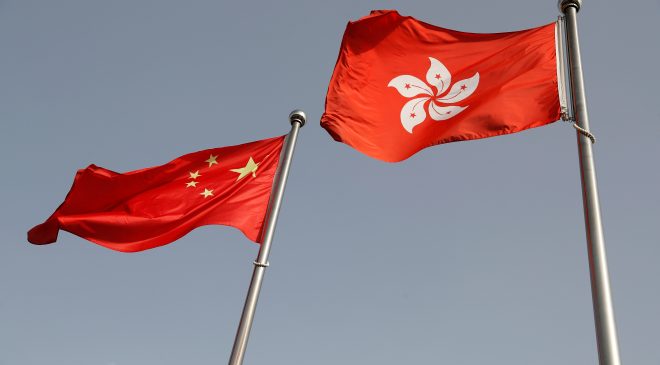
Huang Jingwen, Assistant Government Chief Information Officer (Industry Development) discusses the importance of IoT for HK.
The technology and application of the Internet of Things have developed rapidly around the world. According to the results of the “IDC Global Internet of Things Decision Makers Survey 2019”, it is found that 63.5 per cent of the global enterprises have used the Internet of Things platform, and the proportion of Chinese enterprises using the Internet of Things platform is even higher, reaching 65.7 per cent.
IDC predicts that by 2023, the scale of China’s Internet of Things market will reach US$260 billion, accounting for approximately 25 per cent of the world over the same period. The report of PricewaterhouseCoopers (PWC) also pointed out that from 2016 to 2019, Guangdong Province ranked first in the nation’s cumulative Internet of Things investment amount and investment volume, which shows that Guangdong Province is a pioneer in the development of the Internet of Things in the country.
In Hong Kong, the industry is also applying IoT technology in different fields to develop innovative business models and business opportunities.
In this year’s “Hong Kong Information and Communication Technology Awards”, many of the winning projects are closely related to the Internet of Things, including: the use of the Internet of Things combined with artificial intelligence technology to allow property managers to quickly understand the various conditions of all toilets and realize the Intelligent management and operation; using smart IoT devices to monitor the location and storage temperature of medicines in the hospital in real time, facilitating medical staff to search in advance, greatly reducing the waiting time for patients to get medicines; and using WiFi fingerprints, sensor fusion technology and artificial intelligence, developed a set of simplified indoor map technology, which can quickly locate indoors without installing other hardware, and conduct real-time route navigation for users.
These projects have been successfully applied in many hospitals and shopping malls in Hong Kong, and the indoor map technology has been adopted by Apple to provide indoor positioning services in the iOS system.
The Hong Kong Special Administrative Region government is also actively applying technologies such as the Internet of Things, big data, and artificial intelligence to enhance public services. In the “Hong Kong Smart City Blueprint 2.0” just announced, we proposed more than 130 measures, many of which apply IoT technology.
For example: the use of the Internet of Things in the ambulance station to simplify the handling, replenishment, and procurement procedures of dangerous drugs to improve emergency ambulance services; and the use of sensors to improve the efficiency of toilet management and rodent control; improve environmental hygiene. In order to support the development of a new generation of e-government by various government departments, we launched a new government cloud and “big data analysis platform” in September this year to provide efficient infrastructure to support departments to launch more related applications and improve people’s livelihood.
Hong Kong is linked to the development of the Mainland and IoT is one of the key technologies and applications leading the development of smart cities.
We hope that the industries of the two places can continue to deepen the exchanges and cooperation in the new generation of information technology, grasp the opportunities brought by the “Guangdong-Hong Kong-Macao Greater Bay Area” plan, and join hands together, build the two places into smart cities that keep pace with the times.




